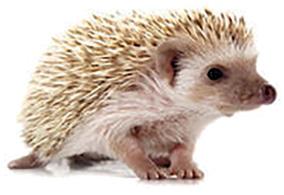
3 minute read
A day in the life of a crematorium caretaker/cleaner
Working part-time, (as I am semi-retired) I could not wish for a better job. I get to help make a difference to families and friends on what is one of the worst days they could have, by ensuring that all the “little things” are taken care of.
Advertisement
A lot of effort goes into the upkeep of a crematorium and I am just part of a team that makes it all work smoothly, the goal is to make it happen without making it obvious – if I’m not noticed at all, I know I’ve done my job – I just blend in.
My job starts at the main gate as I drive onto the site, noting any litter at the entrance and within the car park, progressing to check that all exterior lighting is working and in good order. Once the building is opened a check on the number of services that are happening on the day is necessary as this informs the planning for the day and the week ahead.
If we are holding an early service, my priority is to inspect the ceremony hall/chapel where the sweeping of the floor and mopping to remove footprints from the previous day. I then check the seating is all aligned, and the service books are in place (not now though!). The little things are important: to ensure that the placing out of water jugs and glasses and tissues are in place for those attending the services and the ceremony leaders; that the curtain and voile are hanging neat and tidy, and a final dusting of all surfaces. It is important that I look at everything through the eyes of those visiting.
With the current health crisis it is even more important to make sure that everything is cleaned to a high standard and maintained throughout the day, the toilets are cleaned between services, as are the seats and other hard surfaces in the Chapel/ Ceremony Hall to make sure everything is as safe as possible for all visitors. After the services begin, I move to look at the wider grounds, tidying up the memorial areas, removing dead flowers and cleaning the memorial wall and pillars, making note of any maintenance that may need doing during the coming week. And it is my responsibility to manage flowers left on the coffin by placing these in vases for display in the crematory to commemorate those we cremate, and a respectful nod to those resting in the cold store.
I also coordinate all the personal items left on coffins by recording these items for subsequent transportation to charity shops – we carefully select the shop that best relates to the condition the deceased had died from. It’s our “little” way of taking care of the those “little things” by permitting the items to travel with the coffin, and then sensitively disposing of them to avoid a storage (and certainly not an emission problem) whilst giving to others, because experience has shown that the families and friends do not want the items back.
I work with an extremely friendly team that has made me feel welcome and helped with a completely new job role. It has had its challenges for me, but I know that I made the right choice in coming to work here. I love working outside and inside and have been fully supported by the management team.
When working outside in the Anniversary and Wendelburie memorial gardens, I get to meet family members putting out flowers or just having a walk around and will often stop for a quick chat with them.
As I say, at the end of the day, it’s the “little things” that matter to us all.
Ian Mannion
Member interaction is the Institute's lifeblood. Why not facilitate a branch meeting?
iccm branch secretaries, contact details
Northern: Graham Harrison Email: Graham.Harrison@durham.gov.uk T: 03000 265 606
Eastern: Tracy Lawrence Email: TLawrence@nenevalleycrematorium.co.uk T: 01933 229 660 or 07904 457 372
South East: Heather White Email: heather.white@southampton.gov.uk T: 023 8076 6405
Midlands and Mid Wales: Michael Birkinshaw Email: bereavement@bromsgroveandredditch.gov.uk T: 01527 62174







